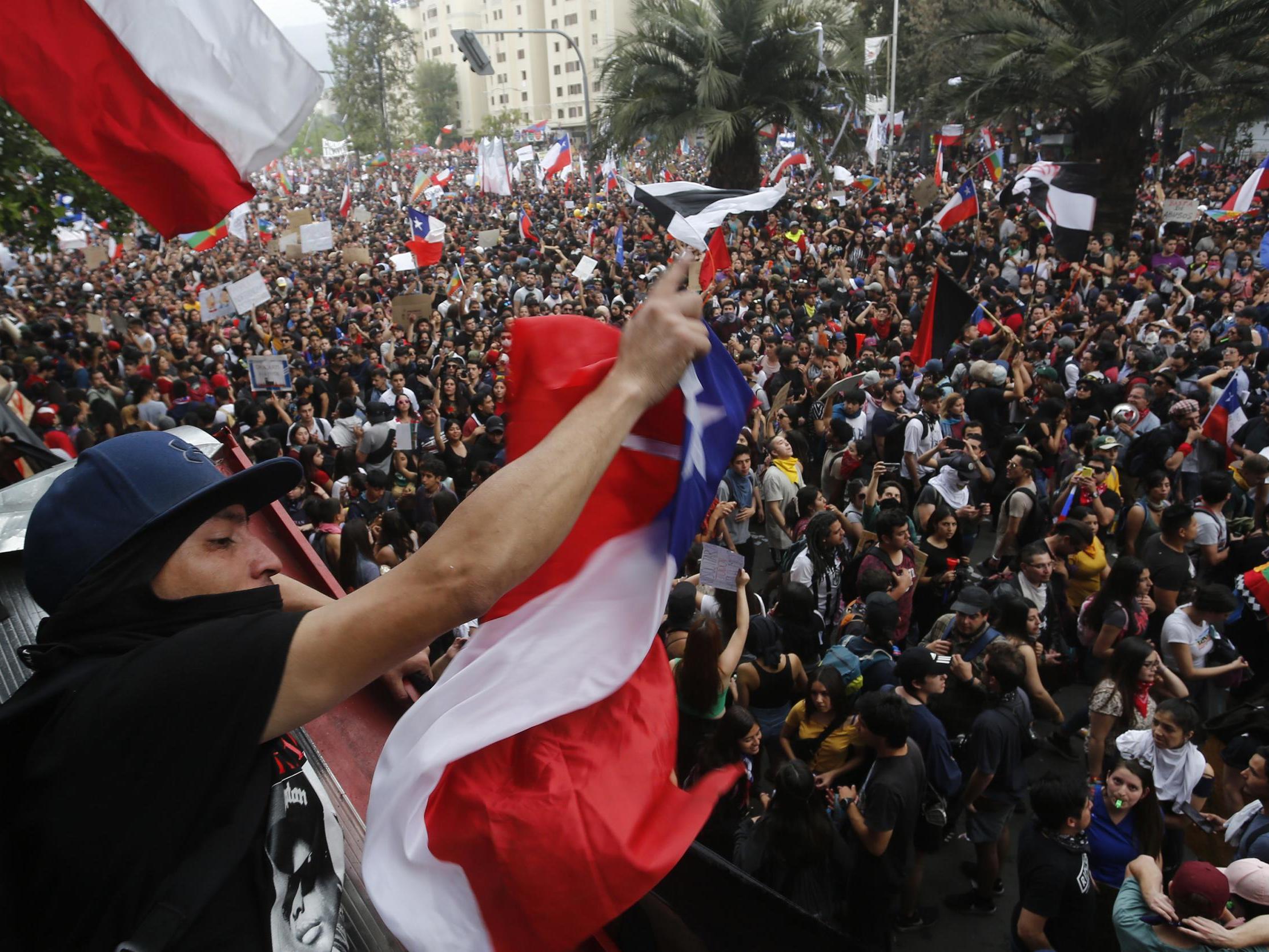Widespread protests force Chile to scrap summit where Trump was expected to end China trade war
APEC summit was set to be stage for end of trade war between China and US

A major summit where Donald Trump and Chinese president Xi Jinping were set to sign an interim agreement to end the 15-month trade war, has been cancelled by Chile’s president.
Sebastian Pinera blamed ongoing protests for the decision to call off the Asia-Pacific Economic Cooperation meeting (APEC) slated for 16-17 November.
He also cancelled the United Nation’s COP25 climate summit scheduled for the first two weeks of December.
Mr Pinera said he had taken the “painful” decision to better focus on restoring law and order to the country following 12 days of protests in the South American country which has left 18 people dead.
Demonstrators demanding greater economic equality and better public services have forced the shutdown of numerous subway stations. Some have resorted to vandalism and arson.
“This has been a very difficult decision, a decision that causes us a lot of pain, because we fully understand the importance of APEC and COP25 for Chile and for the world,” Mr Pinera said.
Mr Trump and Mr Xi had been expected to sign an interim agreement to end the 15-month trade war between their nations at the APEC summit.
Meanwhile the UN’s COP25 summit on climate was to be the latest iteration of the influential meeting of world leaders to tackle green issues.
The conferences have previously marked global turning points in the campaign to resolve climate issues – including in 2015 when it was used as the backdrop of the Paris Climate Agreement.
The UN is urgently seeking a new venue for the conference, but said it may need to delay the event after Chile became the first country to pull out of the event at such short notice.
“We have lost a unique opportunity in the country’s history,” said Matias Asun, Chile director for Greenpeace. He added it was a “huge failure for the government in the face of environmental demands and injustices facing the country”.
It comes as Mr Pinera attempts to hold onto power in his homeland after the violent protests.

The unrest began when students opposed to a 4 per cent rise in train fares began demonstrations. But they quickly escalated into anger over the cost of living across the country.
Mr Pinera has blamed the resulting protests and riots on “criminals” and declared a state of emergency in the country’s capital Santiago where soldiers were deployed for the first time since the country was ruled by a military dictatorship.
Chile’s embattled leader also fired almost half his cabinet this week – including his finance, interior and economy ministers – in a bid to quell protests which had little impact in the country where low wages, underfunded health systems and low pensions have caused financial difficulties for millions.
The country suffers one of the worst rates of income inequality among OECD countries – with only Costa Rica and South Africa experiencing a greater divide between the rich and the poor.
Additional reporting by Reuters.
Join our commenting forum
Join thought-provoking conversations, follow other Independent readers and see their replies
Comments
Bookmark popover
Removed from bookmarks